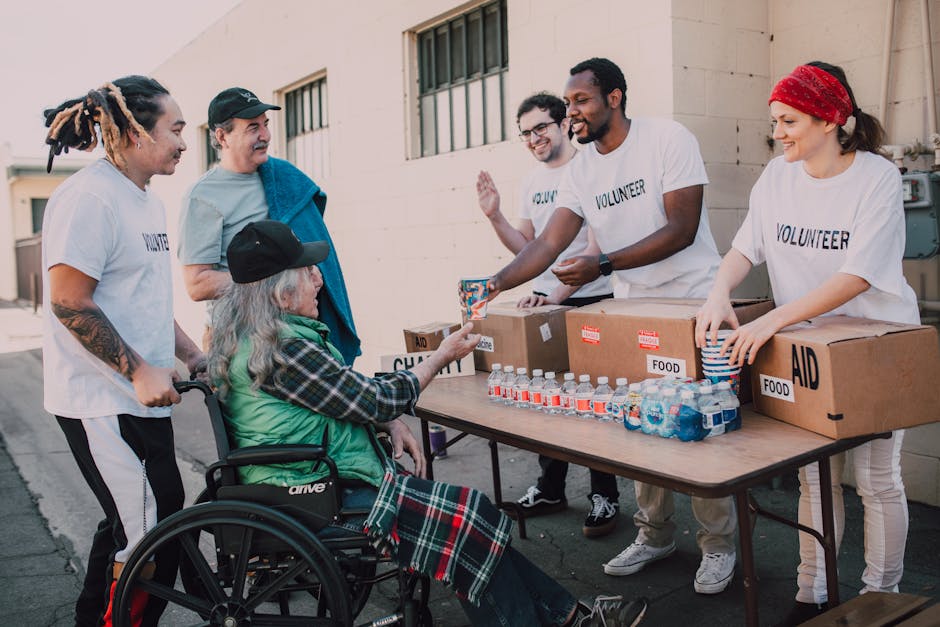Navigating Digital Afterlife: Create Legacy Profiles in Gaming
As digital landscapes evolve, the idea of legacy profiles in online gaming is more crucial than ever. Have you ever wondered what happens to your in-game achievements and friendships after you log off for the final time? In an era where gaming communities form deep connections, understanding how to navigate this digital afterlife could make all the difference for you and your fellow gamers. From maintaining continuity in friendships to ensuring your achievements live on, this guide explores the comprehensive landscape of legacy profiles within online gaming, helping you make informed decisions that impact your gaming legacy and the community around you.
The Concept of Digital Legacy in Gaming Communities

In the grand tapestry of gaming culture, a player’s digital legacy is akin to their real-world legacy. Much like how we cherish photos, letters, or even journals, gamers today are beginning to recognize the value of their online history—achievements, experiences, and relationships woven into the fabric of their favorite gaming titles. A digital legacy refers to the lasting impact players leave behind, including their achievements, in-game items, and connections forged in multiplayer worlds.
In online gaming communities, sharing experiences through legacy profiles can facilitate deeper discussions and connections. Communities often serve as the backbone of gaming experiences, providing players with a platform to share stories, exchange tips, and offer support. By maintaining a digital legacy, players can continue to engage with their communities long after they've stepped away from active gameplay.
Why Legacy Profiles Matter

Legacy profiles are crucial not only for individual players but for gaming communities as a whole. They offer a way for players to keep their memories and achievements alive even when they are not actively participating in the game. One common question arises: how will your virtual accomplishments be perceived in the future? Leveraging legacy profiles ensures that your digital footprint endures, fostering an inclusive atmosphere for newcomers and veterans alike to learn from past players.
Additionally, legacy profiles can positively influence game design. Developers often pay attention to community trends and player feedback captured within these profiles. The evolution of a game can be shaped by the contributions of its users, making legacy profiles a vital asset in understanding player expectations and experiences. They may also help redefine gameplay mechanics, as highlighted in the art of deception where community insights have led to refinements in narrative engagement.
Building a Legacy: What to Include

Creating a well-rounded legacy profile involves more than just listing achievements. Consider the following aspects to enrich your digital presence:
1. Achievements and Milestones

Capture your proudest moments within gaming—essentially, what content defines you as a player? Whether it be completing difficult quests, reaching in-game milestones, or unlocking rare items, a comprehensive record paints a richer picture of your journey. Such achievements might even lead to invaluable lessons on player resilience and creativity, shedding light on the stories behind the victories, as seen in the transformative role of AI companions in enhancing solo experiences.
2. Player Interaction History

Documenting key friendships, rivalries, and collaborative moments can heighten the nostalgic factor of your legacy profile. Updating your profile with anecdotes about significant experiences shared with friends creates a tighter bond within your community. This history can serve as a reminder of how friendships evolve through gameplay, emphasizing the emotional resonance of interactive storytelling, highlighted in interactive games.
3. Contributions to the Community

Highlight how you've given back to the gaming community, be it through feedback, assisting new players, or participating in community events. Such contributions serve as a testament to your engagement with the game’s ecosystem and demonstrate the positive impact you have had.
Platforms Supporting Legacy Profiles

Several gaming platforms and titles are already adopting systems facilitating legacy profiles, ensuring that players have a lasting way to connect with the community and carry their achievements into the digital afterlife.
1. Social Features in Multiplayer Experiences
Games like Final Fantasy XIV employ built-in social features that allow players to comment on achievements and milestones. This not only keeps players engaged but also fosters a sense of connection and camaraderie among users. Multiplayer titles often have leaderboards showcasing top players, thus ensuring their achievements are celebrated even when they're not online.
2. Legacy Systems in Indie Games
Indie games are exploring more personal avenues when it comes to legacy. Titles such as Journey have extended connection opportunities by showcasing player achievements in unique ways, presenting a reflective space for players to think about their journey in the game. For those interested in indie development, check out how DIY game development is reshaping how memories are crafted within gaming universes.
3. Web-Based Tools for Legacy Profiles
Dedicated websites and applications designed for gaming legacies are facilitating deeper connections. Platforms such as MyAnimeList maintain community-driven databases, allowing players to chart their gaming experiences over time. These external sites offer players not just a place to record achievements, but a community to explore discussions, reviews, and recommendations according to their gaming experience.
Challenges in Maintaining Legacy Profiles
While the notion of creating a digital legacy is compelling, several hurdles exist that can complicate the process:
1. Platform Changes and Migrations
As games evolve, platforms may undergo significant changes, leading to the discontinuation of legacy profiles. This could mean losing hard-earned achievements and cherished memories. Consequently, players must remain adaptive, transferring their progress across various platforms to ensure their legacy endures.
2. Community Disintegration
As players move on or communities dwindle, the essence of a legacy profile can fade. Examining this phenomenon reveals a critical aspect of gaming—communities thrive through engagement. Keeping connections alive outside of the gaming environment is pivotal, underscoring the need to maintain friendships even when gameplay slows down.
3. Conversational Disconnect
While it may seem trivial, how players communicate their achievements can either enhance or diminish the legacy experience. Language variations, game lore complexities, or cultural differences can hinder genuine storytelling, inciting miscommunication among peers. Thus, integrating elements like language in player interactions enhances storytelling and furthers understanding and appreciation of gaming experiences.
Preserving Legacy Profiles After Departure
When a player departs from a gaming environment—whether it be voluntary or due to the confines of life—how can they ensure their legacy endures? Several approaches can help mitigate the risk of losing connection and recognition:
1. Establishing Digital Wills
Just like in real life, creating a digital will can ensure that your achievements and profile legacy can be passed down or maintained by friends or family. Such arrangements can further highlight the importance of gaming communities, fostering continuing bonds even after a player’s departure.
2. Public Acknowledgment Strategies
Engaging with the community prior to your departure can serve to retain bonds. Hosting events, writing farewell messages, or creating legacy-oriented content can solidify your place within the community, ensuring that your presence continues long after you’re gone.
3. Capturing the Journey
Players should consider documenting their journeys through blogs, videos, or forums. This practice helps create a tangible representation of their experiences, allowing their legacy to resonate within creative, forever accessible formats.
Future Trends in Gaming Legacies
As the landscape of online gaming continues to shift, legacy profiles are becoming smarter and more engaged. Here are a few emerging trends to monitor:
1. AI-Enhanced Legacy Profiles
With the advancement of AI technologies, developers may introduce customized legacy profiles that adapt based on player behavior and achievements. Enhancements might include automatic updates on game contributions, personalized commemorative content, or even predictive nostalgia features allowing access to meaningful memories.
2. Cross-Platform Norms
The trend towards cross-platform compatibility is increasingly allowing players to transport their legacies across different gaming environments. By fostering continuity in this manner, players can maintain connections and celebrate achievements above individual titles or platforms.
3. Community-Driven Initiatives
Expect gaming communities to ramp up their efforts to promote legacy profiles through events and initiatives. Community-led legacy showcases may become commonplace, encouraging players to share their journeys while ensuring a collective celebration of achievements and connections.
Next Steps
As you navigate the complexities of your digital legacy in gaming, consider these steps to establish a fulfilling and memorable legacy profile:
- Engage: Connect with fellow gamers and share your experiences.
- Document: Keep track of achievements, friend interactions, and contributions to the community.
- Adapt: Stay updated on platform changes and community developments to safeguard your legacy.
Understanding the importance of legacy profiles in gaming communities empowers you to foster meaningful connections, celebrate accomplishments, and shape the future of gaming experiences. As you embark on your journey through the digital afterlife, remember that your contributions have the power to inspire future generations of gamers.


